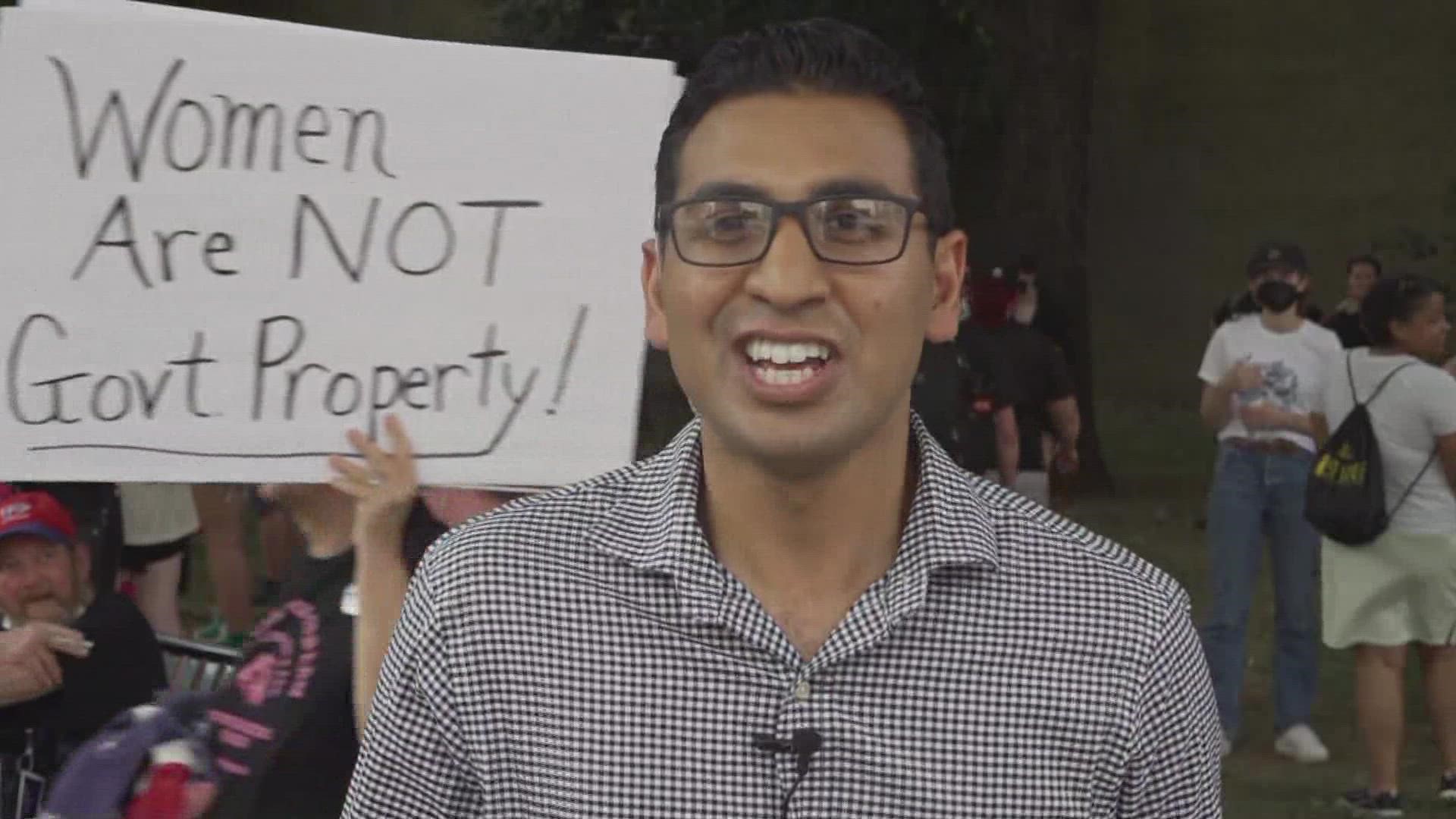KNOXVILLE, Tenn — Passions flared across the U.S. on Friday, after the country's Supreme Court announced that the Roe v. Wade decision was overruled and people were not guaranteed access to abortion treatments.
Advocates and lawmakers spoke about the precedent the ruling set, possibly threatening other rights guaranteed through court decisions like the right to same-sex marriage, access to contraception and interracial marriage. The decision was handed down after several years of protests and court battles across the U.S.
"It's a mournful day, because we know that we have a long and unpleasant fight ahead of us," said Caroline Mann, one of the event's organizers. "In a way, that's energizing."
Some of those protests were in Knoxville, and groups gathered downtown once more Friday evening to protest the Supreme Court ruling and the state's laws that would effectively criminalize providing abortion treatments. The rally formally started at 5 p.m. and is called "Bans off Our Bodies."
It was organized by several groups including Planned Parenthood of Tennessee and North Mississippi, and Tennessee Advocates for Planned Parenthood.
In Knoxville, a Planned Parenthood clinic that gave a variety of treatments burned down on New Year's Eve of 2021. Authorities ruled it arson, but no suspect was identified. Leaders previously said they were working with the design team to create a new building after their previous building was entirely destroyed.
Organizers said the rally on Friday was meant "not only to demonstrate that people still support abortion access, but to show that we won’t back down." They encouraged people to wear masks and practice social distancing as a COVID-19 safety precaution.
"Our movement will continue to help people access care, no matter what," organizers said online.
Similar events were planned across the U.S. and in other major cities across Tennessee. One was planned in Chattanooga and another was set for Nashville through the same organizing groups.
Tennessee is one of many states that have new laws that automatically go into effect preventing abortion treatments after Roe v. Wade is overruled. It also still has laws on the books from before the original ruling was handed down in 1973.
It effectively charges abortion treatment providers with a Class C felony if they give someone an abortion treatment. It also orders licensing boards to remove their medical license.
It specifically does not try to punish women who receive abortion treatments. It allows abortion treatments if the mother's life would be at risk, but specifically excludes cases where a provider treats someone by giving them an abortion because they could attempt to kill themselves. Abortions in those cases would be illegal.

